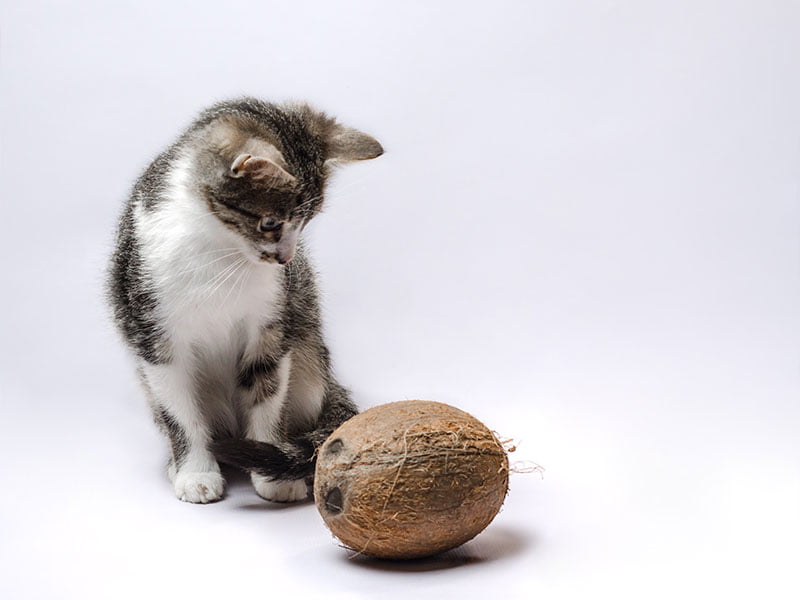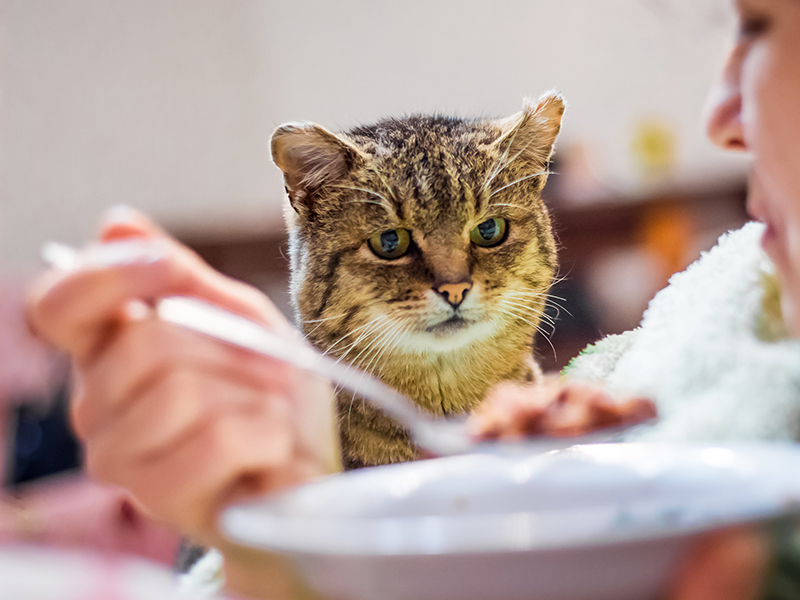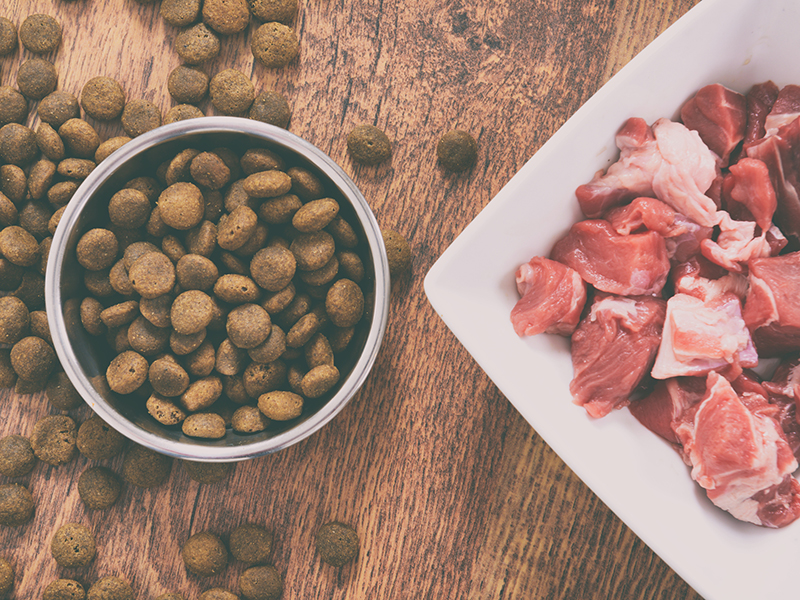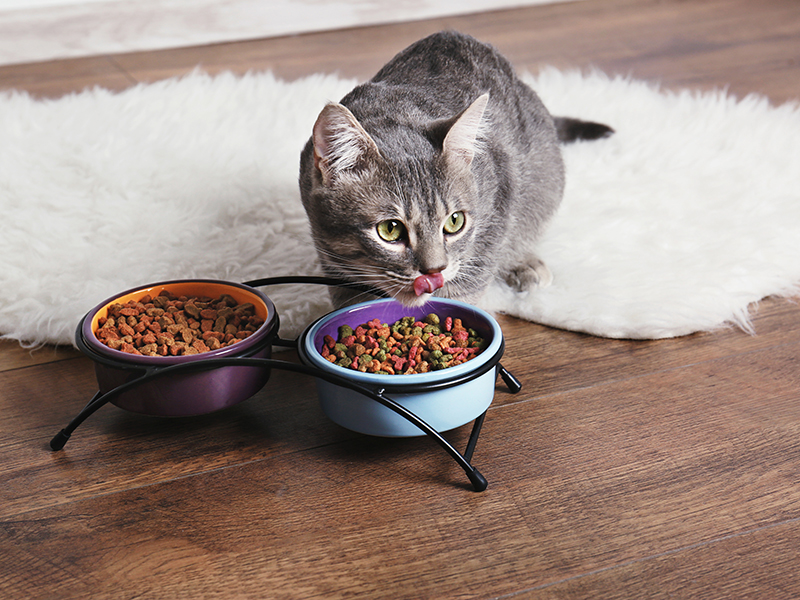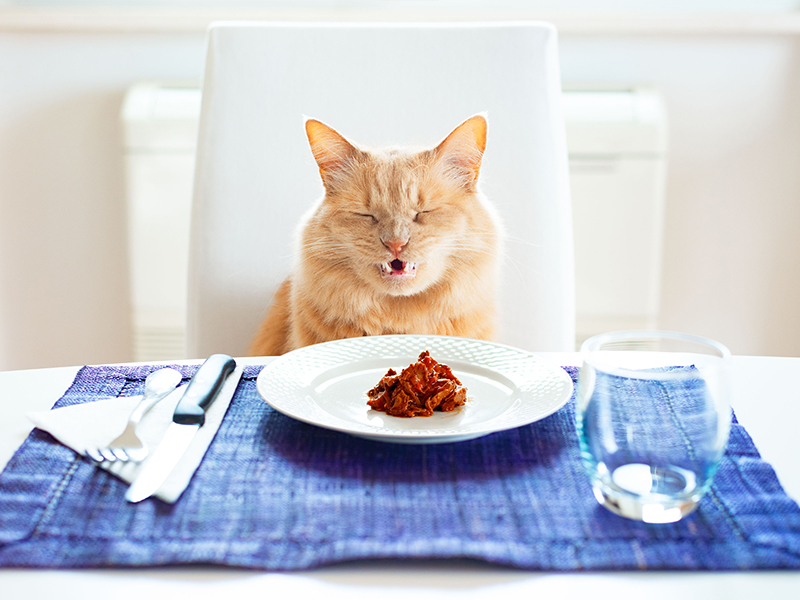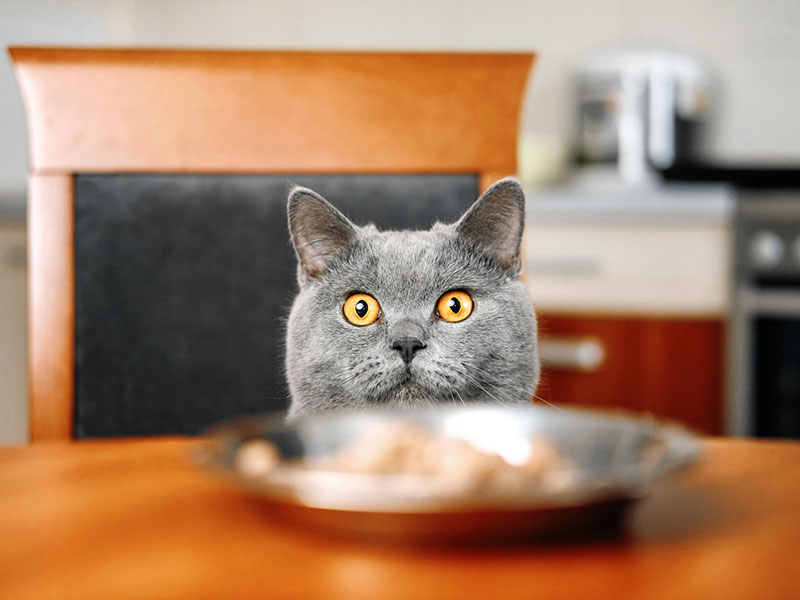If you’ve been working on your personal health and wellness goals, you’ve probably started making smarter choices about adding nutrient-dense foods to your diet. Not all foods are made equal! Superfoods are incredible because they offer more nutrient bang per calorie – helping the body to receive optimal health benefits while still satisfying a picky palate. Speaking of picky eaters; did you know that some superfoods make excellent supplements for cats? Yes, you can also boost your kitty’s wellness and longevity by treating them to or finding supplements containing a few superfoods on this list.
Most conscious cat parents are already aware of the benefits of occasionally treating their cats to well-cooked lean meat, fish, and eggs; but there are a few other nuggets of natural nutrition that your kitty would love! Here they are:
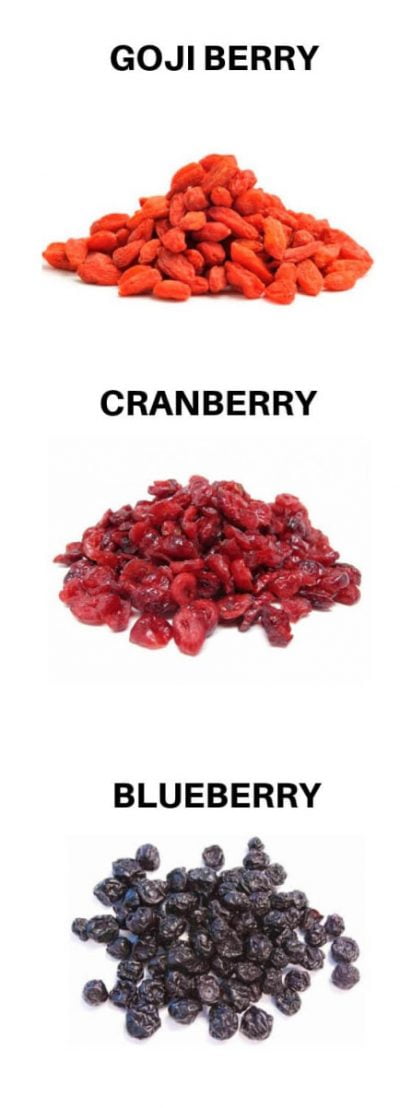 Berries
Berries
Goji berries
These berries look a lot like raisins, which are dangerous for cats to eat, but goji berries are actually super cat-friendly! Goji berries are packed with essential nutrients, vitamins and minerals. With their high content of amino acids and antioxidants; they help to prevent the growth of cancer cells as your cat ages.
They also contain nutrients that help to reduce blood sugar and fat; making them a healthy treat for a potentially pre-diabetic kitty.
If you’d like to make goji berries more digestible, you could soak a few berries in water before offering them to your kitty.
Cranberries
Cranberries are great eaten whole, or if your kitty doesn’t like their taste, there are plenty of store-bought supplements available on the market.
Amongst their content of important vitamins (like vitamin C for immune health) and antioxidants; these berries are also known to boost kidney health and relieve the symptoms of feline UTIs. Kidney failure is a common illness suffered by senior cats, so try to help your kitty get ahead of the burn.
Blueberries
You may be wondering, can cats eat blueberries?
Bright blueberries are commonly found in commercial cat food recipes – making them a familiar, cat-friendly taste. As with other berries, they are low in calories but add delicious flavor, antioxidants and fiber to a meal. Here are a few lesser known health benefits of this little smurf berry:
- help to reduce muscle damage after energetic play
- strengthen the urinary tract against infections
- stabilize insulin and glucose sensitivities
- optimize brain function
Dandelion
These yellow puffs of sunshine are not just lovely to look at; botanists actually consider them to be highly nutritious herbs with multiple health benefits.
Ever notice how your kitty chews on shrubbery (or your favorite house plant)? Well, that’s because they’re looking for some natural fiber! In addition to the digestive system and detox boost they offer, dandelion leaves and roots can help your cat to alleviate any seasonal allergies they may be experiencing.
If you’re pulling a few up from the garden, remember that they need to be chemical/pesticide free. Ideally you should dig up the entire plant, and rinse the roots well. Dice the whole thing up and dry it out like you would do for normal cooking herbs – then simply sprinkle a pinch or two onto your kitty’s meal every now and then.
Coconut Oil
With ancient Eastern origins, coconut oil has been used by humans for centuries. We harness its power for many things; from cooking to skincare – it was only a matter of time before pet food manufacturers started catching on!
You’ll find coconut oil in many accredited cat foods, so it’s safe for eating and topical application.
When eaten, it will help your kitty with overall digestion and stimulate their neural transmitters – helping your cat’s mind to stay sharp!
Topical application will also help your kitty to manage their furballs a little better. By treating your cat’s coat to coconut oil every now and then, they will need less grooming to keep pesky yeast or fungal infections away.
Cooked Veggies
 Broccoli
Broccoli
Soften these fantastic florets and let you kitty give them a try every now and then. Broccoli is packed with antioxidants and other compounds (like sulforaphane), which help to reduce arthritis and feline dementia.
It’s also loaded with fiber, so you could offer a tiny amount to your kitty if they’re feeling a little constipated (not too much, or it will push the litter box the other way!)
Pumpkin
Pureed or juiced pumpkin can also be used to aid feline digestion.
Pumpkin is naturally rich in carotenoids, potassium and vitamin C which is why many commercial cat food recipes contain traces of it already.
If you’re cooking it at home; remember to skip the spice – cats need to eat human food as clean as possible – they really just need the fiber and natural nutrients from it.
Chia Seeds
These high protein seeds are a fun treat for cats struggling to maintain their weight.
Because of their high nutrition profile and texture, cats nibbling on these absorbent seeds feel hydrated and fuller for longer. They work by slowing down a large appetite.
The best way to serve chia seeds is by soaking them in water; this will give the seeds a jelly-like consistency. The spongy seeds temporarily expand your kitty’s tummy, essentially slowing down food absorption.
Chia seeds are also rich in an omega 3 fatty acid that helps to promote heart health and repair tissue damage.
Whether you intend to be more alert about finding these superfoods on cat food labels and nutritional supplements, or if you plan on making these little treats at home; remember that cats should only eat superfoods (or other kinds of human food) in limited quantities. Treats should never exceed 10% of your cat’s daily calorie intake of a balanced cat food diet. Chat to your vet for more guidance on natural supplements if needed.

